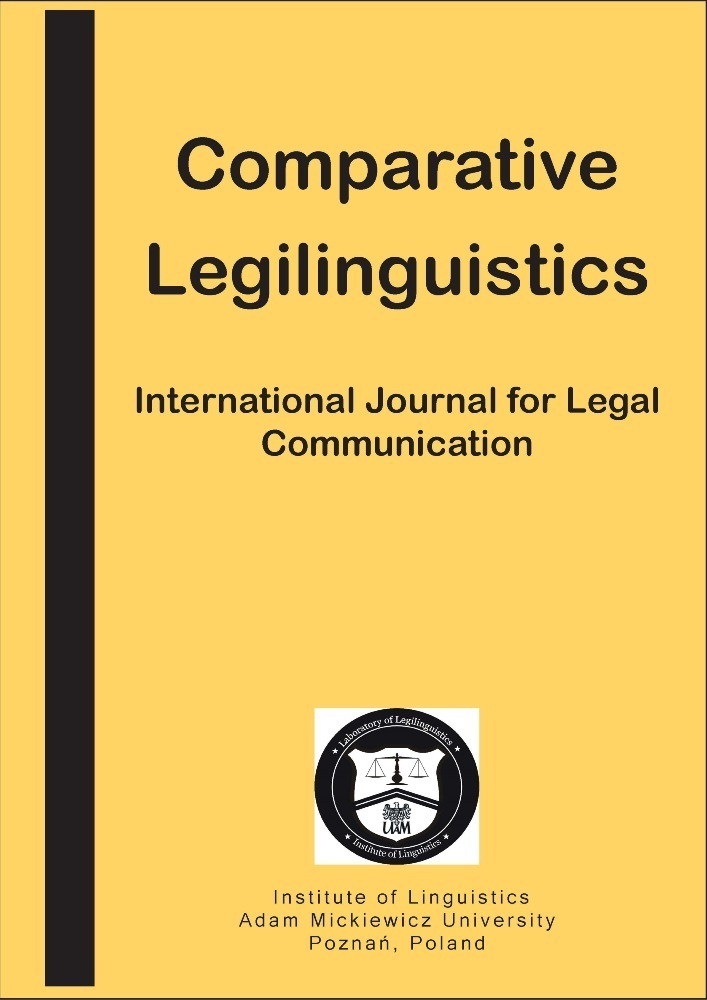Testing the hypothesis of “translation as a catalyst for plain legislation” on the syntactic level: a comparison of different varieties of legislative Italian
Testing the hypothesis of “translation as a catalyst for plain legislation” on the syntactic level: a comparison of different varieties of legislative Italian
Author(s): Paolo CANAVESE, Laura MoriSubject(s): Law, Constitution, Jurisprudence, Syntax, Translation Studies
Published by: Uniwersytet Adama Mickiewicza
Keywords: legislative Italian; Eurolect; Swiss Italian; syntactic complexity; readability; plain language; accessibility; corpus-based study;
Summary/Abstract: Translation is often considered as an ally of plain legal language. This corpus-based study sets out to provide empirical support for this hypothesis by comparing different varieties of legislative Italian used in a monolingual context (Italy) and in two multilingual settings (Switzerland and the European Union). The investigation relies primarily on a quantitative analysis of syntax informed by natural language processing (NLP) methods. The results suggest that translated legislation features shorter sentences, fewer nominalizations, an underuse of the passive voice, fewer non-finite clauses, less deep syntactic trees, shorter dependency links, and a preference for the SVO order with an explicit subject. Among the two multilingual contexts, Swiss legislation shows a slightly higher level of accessibility compared to EU directives. A complementary analysis using readability metrics confirms these trends. Nevertheless, in addition to the translation process in multilingual contexts, other latent external variables may have a (hardly quantifiable) impact on the level of accessibility, such as institutional language policies, legal traditions, drafting guidelines, and training programs for translators and language experts
Journal: Comparative Legilinguistics
- Issue Year: 2024
- Issue No: 58
- Page Range: 113-150
- Page Count: 38
- Language: English

